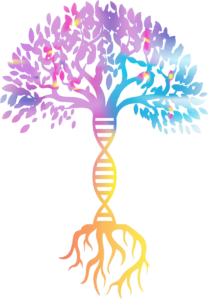
Defining Functional Medicine
In medical school, students begin by learning anatomy and physiology. These lessons highlight the interconnectedness of the body—how organs and systems influence one another, and how form and function are inseparable. In immunology, we learn that immune cells, hormones, and the nervous system are in constant communication, especially during stress. For example, high cortisol can reduce the activity of natural killer cells, lowering our resistance to infection. These insights show us how dynamic and coordinated the human body truly is.
The Limits of the Traditional Model
Despite this deep knowledge, the traditional medical model often narrows its focus. Most doctors are trained to view the body in parts—treating specific organs or symptoms rather than the whole person. If test results clearly fit a diagnosis, patients are usually prescribed medication to manage symptoms. But the root cause, such as thyroid dysfunction linked to diet or lifestyle, is rarely addressed.
Patients whose symptoms don’t fit neatly into a diagnosis often get referred from one specialist to another. A person with asthma and irritable bowel syndrome may see two different doctors, neither of whom considers how the conditions are connected. This organ-based approach can leave patients frustrated and without lasting solutions.
How We Got Here
This wasn’t always the case. In the 1800s, traditional healing systems like naturopathy and homeopathy were widely practiced. But with the rise of pharmaceuticals, vaccines, and the formation of the AMA, these approaches were pushed aside. Modern medicine advanced with technology—MRIs, CT scans, and powerful drugs—but often at the cost of the human connection and holistic care.
A Return to Root-Cause Medicine
Throughout history, healing traditions such as Chinese and Ayurvedic medicine have viewed the body as an interconnected whole. Functional medicine builds on this wisdom, combining modern science with a systems-based approach. Instead of masking symptoms, it asks why the imbalance exists.
Functional medicine looks at every layer of health:
- Nutrition and digestion
- Hormonal and endocrine balance
- Emotional well-being
- Microbiome and detoxification
- Environmental exposures
- Genetic predispositions
The goal isn’t just to reduce discomfort but to restore balance and prevent future illness.
Redefining Health
True health is more than the absence of disease. If you rely on a handful of pills just to maintain “normal” lab results, can that really be called wellness? Functional medicine empowers patients to participate in their healing, creating partnerships between doctor and patient.
A Better Way Forward
America faces a growing health crisis, but there is hope. As awareness grows, more people are seeking out holistic, functional approaches that honor the body’s natural ability to heal. By shifting from symptom management to root-cause care, functional medicine offers a path back to health, balance, and vitality.
Ready to experience a functional approach to your health? Click here for an appointment.
